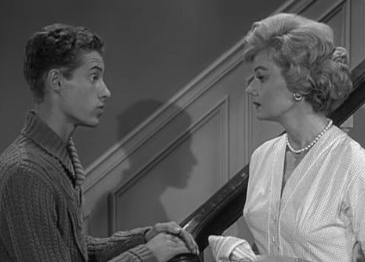Court Denies Plaintiff’s Fallback Request for Meet and Confer after Quashing its Subpoena – eDiscovery Case Law

In Boston Scientific Corporation v. Lee, 1:13-cv-13156-DJC, (N.D. Cal., Aug 4, 2014), California Magistrate Judge Paul S. Grewal found time to preside over a case other than Apple v. Samsung and granted the motion to quash the plaintiff’s subpoena for the defendant’s laptops, refusing the plaintiff’s fallback position to meet and confer and referencing Leave it to Beaver in the process.
The defendant left the employment of the plaintiff and began working for a competitor, which caused the case to be filed against him, claiming theft of trade secrets and violation of a confidentiality agreement (by downloading confidential information onto a USB thumb drive). The defendant’s new employer assigned him a laptop when he started his employment, which he used to both perform his job duties and communicate with his attorneys. Several weeks after the lawsuit was filed, the defendant’s employer segregated this laptop with a third party e-discovery vendor, and issued him a second one.
The defendant’s employer also produced forensic information about the contents of the first laptop to the plaintiff in the form of file listing reports, which disclose extensive metadata of the files contained on the laptop, USB reports, and web browsing history reports. When the plaintiff pressed for more, the defendant’s employer offered to have an independent vendor review a full forensic image of the first laptop to search for pertinent information, including a review of any deleted files. The plaintiff refused, requesting forensic discovery from both laptops and issued a subpoena, to which the defendant’s employer filed a motion to quash.
Judge Grewal began his order as follows:
“This case illustrates a recurring problem in all civil discovery, especially in intellectual property cases. A party demands the sun, moon and stars in a document request or interrogatory, refusing to give even a little bit. The meet and confer required by a court in advance of a motion is perfunctory at best, with no compromise whatsoever. But when the parties appear before the court, the recalcitrant party possesses newfound flexibility and a willingness to compromise. Think Eddie Haskell singing the Beaver's praises to June Cleaver, only moments after giving him the business in private. Having considered the arguments, the court GRANTS Nevro's motion to quash.”
Explaining his decision, Judge Grewal stated “No doubt there exists discoverable information on the two laptops, but by demanding nothing less than a complete forensic image of not just one but two laptops belonging to a direct competitor, Boston Scientific demands too much. Such imaging will disclose privileged communications related to the litigation as well as irrelevant trade secrets from a nonparty-competitor. Boston Scientific's subpoena therefore seeks discovery of protected matter, something plainly not permitted under Rule 45, rendering the subpoena overbroad and imposing an undue burden on Nevro.”
Judge Grewal noted that the plaintiff “[a]s a fall back”, proposed what the defendant’s employer had originally proposed: the retention of an independent vendor to “review a full forensic image of the Initial Laptop to search for pertinent information, including a review of any deleted files.” Judge Grewal closed the door on that request as well, stating “to allow Boston Scientific now to seek shelter from a fallback position that Nevro previously tendered in good faith would make a mockery of both parties' obligation to meet and confer in good faith from the start. The time to tap flexibility and creativity is during meet and confer, not after.”
So, what do you think? Should the plaintiff have been granted its fall back request or was it too late for compromise? Please share any comments you might have or if you’d like to know more about a particular topic.
Disclaimer: The views represented herein are exclusively the views of the author, and do not necessarily represent the views held by CloudNine Discovery. eDiscoveryDaily is made available by CloudNine Discovery solely for educational purposes to provide general information about general eDiscovery principles and not to provide specific legal advice applicable to any particular circumstance. eDiscoveryDaily should not be used as a substitute for competent legal advice from a lawyer you have retained and who has agreed to represent you.





